Tips for workout
Mental health benefits of exercise
Mental health benefits of exercise
Exercise is not only beneficial for physical health but also has numerous mental health benefits. Here are some of the mental health benefits of exercise:
- Reduces stress and anxiety
- Boots mood
- Improves self-esteem
- Reduces symptoms of depression
- Improves cognitive function
- Provides a sense of purpose
- Increases social interaction
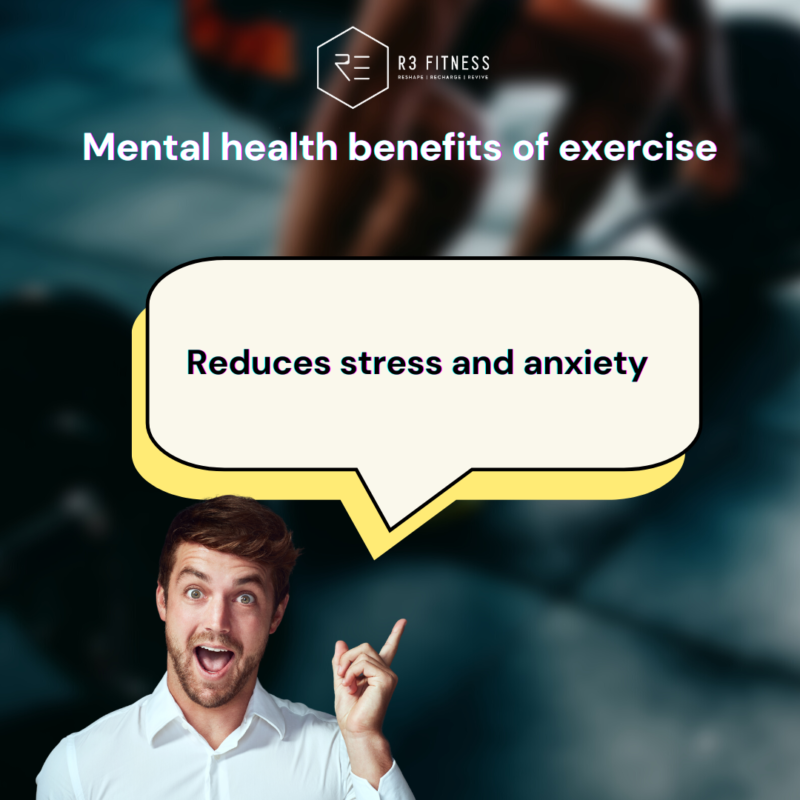
Reduces stress and anxiety
When you exercise, your body releases endorphins, which are natural chemicals that act as painkillers and mood elevators. Endorphins help to reduce feelings of stress and anxiety, leaving you feeling happier and more relaxed. Additionally, exercise can be a great distraction from the things that are causing you stress and anxiety. During exercise, you can focus on the physical activity, rather than the things that are causing you to feel stressed or anxious. Regular exercise can also help to improve your sleep quality, which can in turn reduce feelings of stress and anxiety.
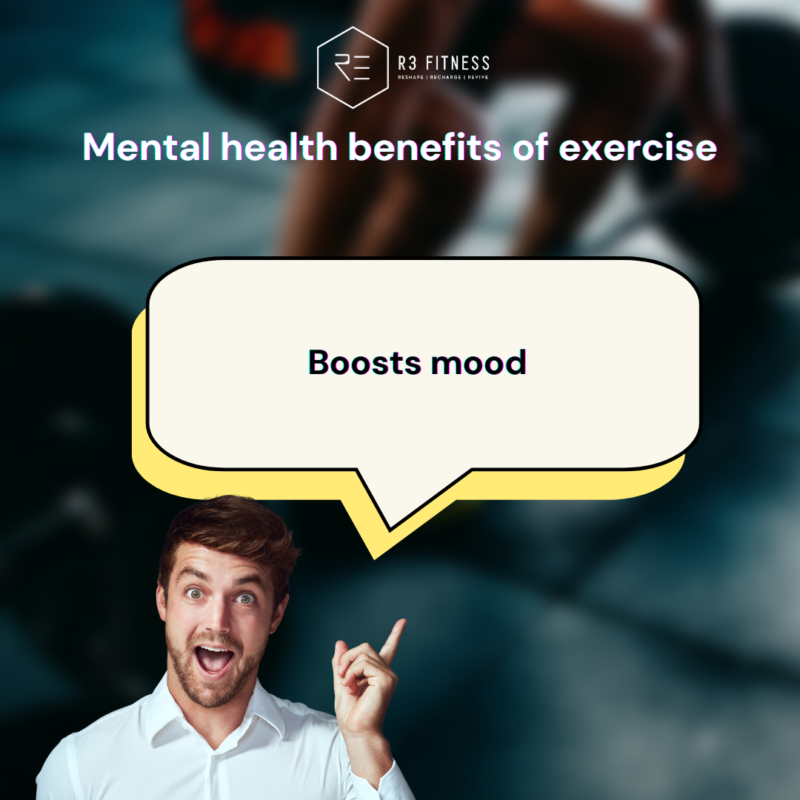
Boosts mood
Exercise can boost mood by increasing the production of neurotransmitters such as serotonin and dopamine. These chemicals can help improve feelings of happiness and well-being.
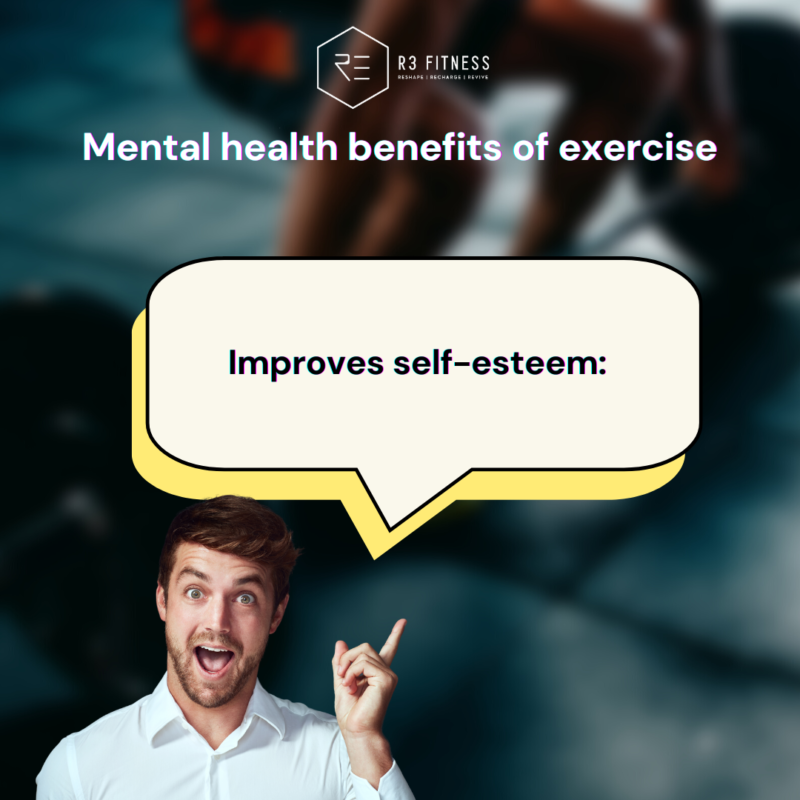
Improves self-esteem
Regular exercise can improve self-esteem by improving physical appearance, increasing feelings of accomplishment, and reducing negative self-talk.
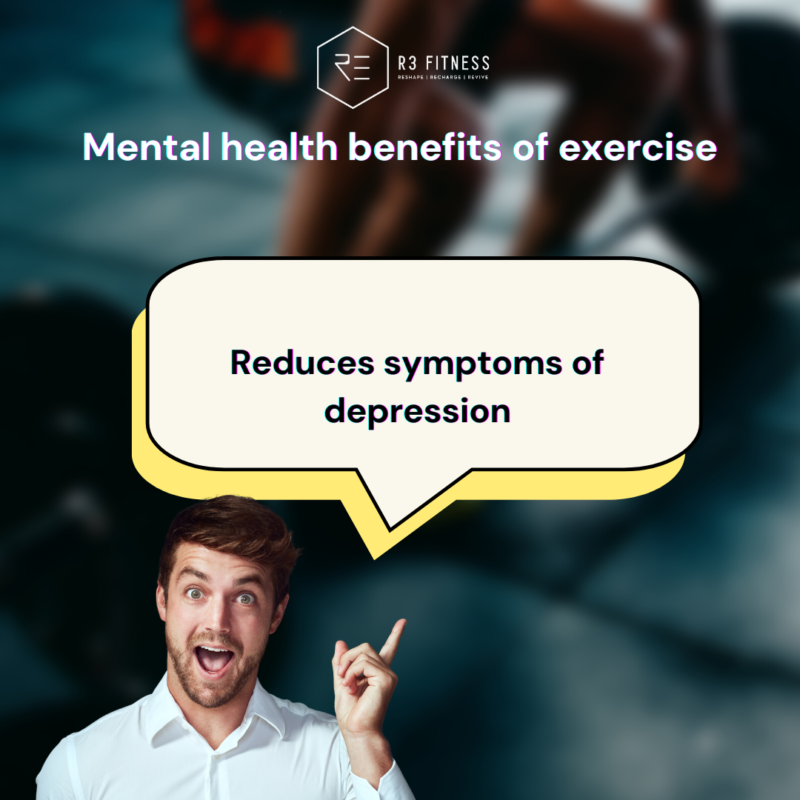
Reduces symptoms of depression
Exercise has been shown to reduce symptoms of depression by increasing the production of endorphins, improving sleep quality, and providing a sense of accomplishment.
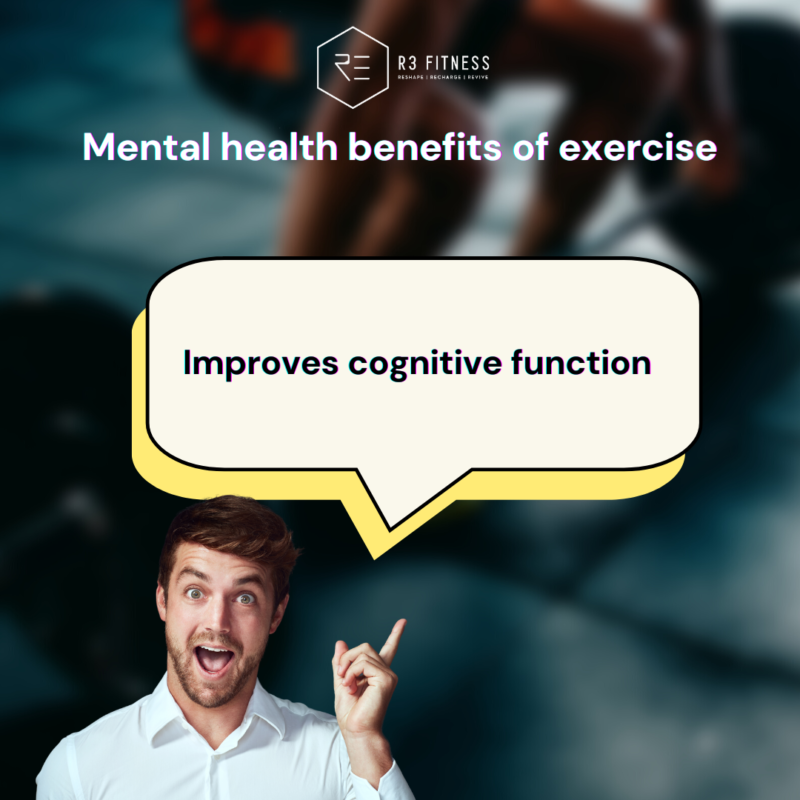
Improves cognitive function
Exercise can improve cognitive function by increasing blood flow to the brain, improving neural connections, and reducing inflammation.
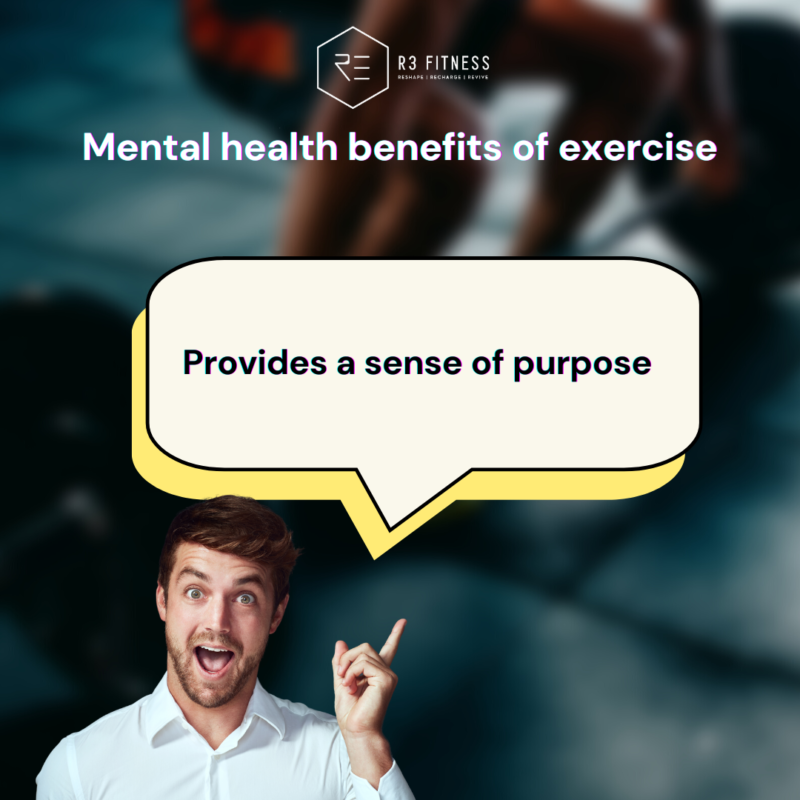
Provides a sense of purpose
Exercise can provide a sense of purpose by setting and achieving fitness goals, which can improve feelings of accomplishment and motivation.
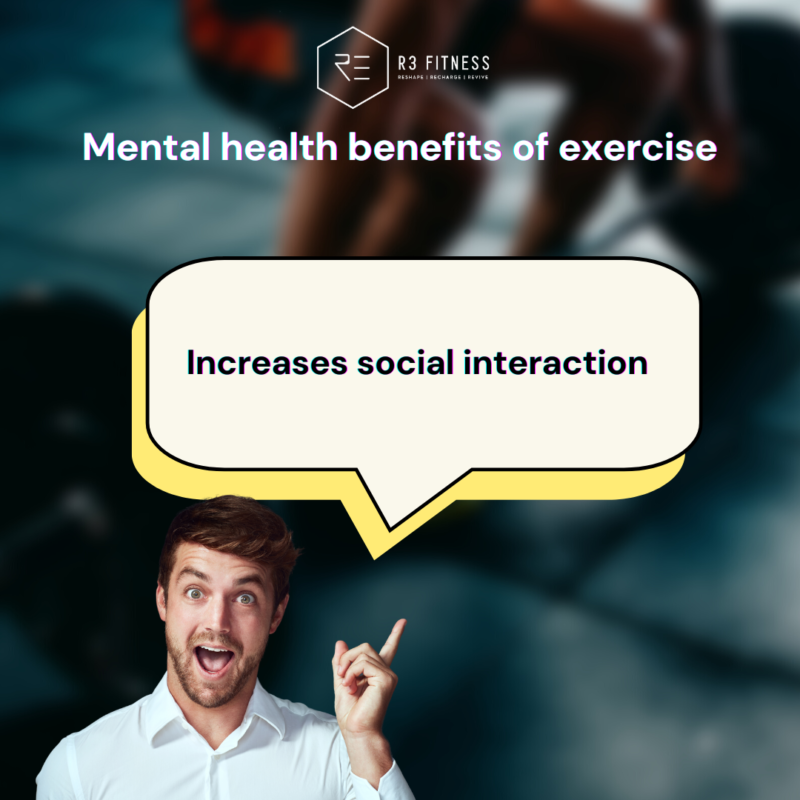
Increases social interaction
Participating in group exercise classes or team sports can increase social interaction, which can improve feelings of social support and reduce feelings of loneliness.
Overall, exercise can have a significant impact on mental health by reducing stress and anxiety, boosting mood, improving self-esteem, reducing symptoms of depression, improving cognitive function, providing a sense of purpose, and increasing social interaction.

